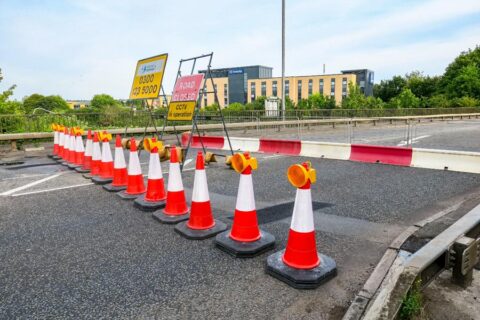
Residents in the West of England are being invited to ‘find joy in the journey’ by swapping short car journeys for walking or cycling to help reduce congestion and improve air quality in the region.
The new campaign from the West of England Combined Authority promotes the benefits of cycling and walking to boost health and wellbeing as well as helping to build a cleaner, greener future for the West of England.
It comes as the number of people cycling and walking reached record levels during lockdown and new cycling and walking measures have been put in place to build confidence and enable residents to cycle and walk more easily.
West of England mayor, Tim Bowles, said:
“During lockdown many people have taken advantage of quieter roads to walk or cycle more regularly.”
“As more people begin to return to school, college and work we have a real opportunity to capture the positive changes we have seen to improve the physical and mental health of residents, improve air quality and ease congestion across the West of England.”
“That’s why I’m encouraging more people to find joy in the journey by swapping a short car journey for walking or cycling whether commuting to work, taking the kids to school or popping to the shops.”
“Not only will walking or cycling boost your mood but it will also help us on the road to a greener future for the region.”
Jon Usher, head of partnerships at Sustrans, said:
“Our research shows that even before the Covid pandemic, a majority of residents in the West of England supported measures to improve walking and cycling on high streets and the restriction of traffic outside schools and on residential streets.
“As schools and workplaces reopen in September we need to take this opportunity to make active travel the obvious choice for all ages and abilities.”
“It’s great to see the measures that the West of England Combined Authority and councils in the region have already taken and we fully support the vision for the future.”
The West of England Combined Authority (Weca) has agreed £13m of investment in measures to enable cycling and walking in the region.
Of this, £3m will underwrite the cost of short-term measures such as widened pavements and temporary cycle lanes to help people to maintain social distancing while walking and cycling.
A further £10m has been agreed for longer-term solutions to encourage active travel in the region.
Weca has recently submitted its second bid to government for active travel and has recently adopted the Local Cycling and Walking Infrastructure plan.
The bid includes further proposals to extend and strengthen the temporary measures already in place across the region to enable cycling and walking.
• Find resources at online at travelwest.info/active-travel


